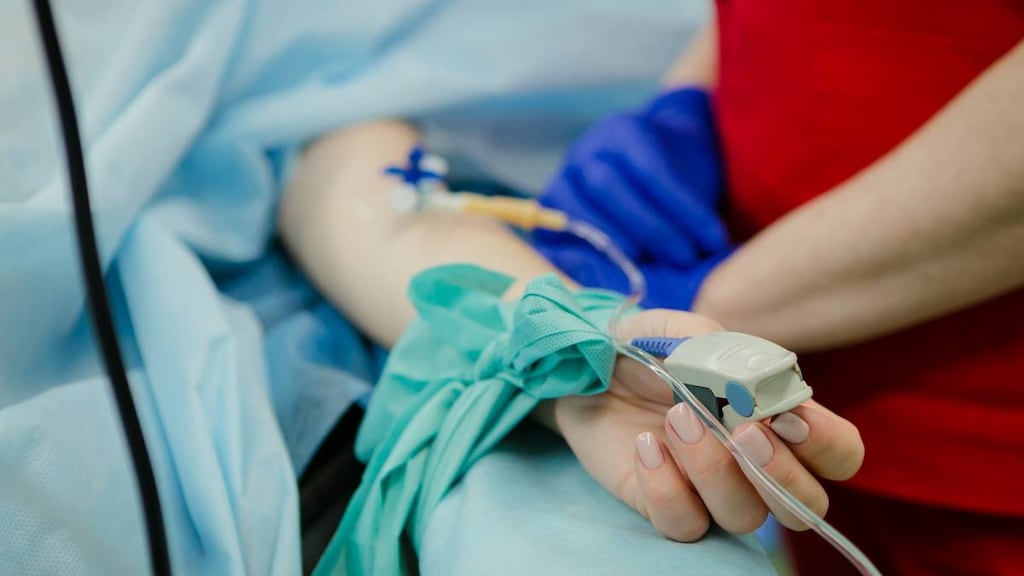Stage 4 Breast Cancer: Life Expectancy and Treatment Options

If you or a loved one has been diagnosed with stage 4 breast cancer, you probably have a lot of questions about what that means, how it is managed and what the future holds for you. Knowing the facts about life expectancy, survival rates and treatment can help ease your anxiety at this difficult time.
Stage 4 breast cancer means the cancer has spread, or metastasized, beyond the breast and nearby lymph nodes to other parts of the body, like the liver, bones, lungs, brain or other organs, according to the American Cancer Society.
Life expectancy statistics
Among women who are diagnosed with breast cancer, about 6 percent have metastatic cancer upon their initial diagnosis, according to the American Society of Clinical Oncology (ASCO).
More than 154,000 women in the United States have metastatic breast cancer, according to the Susan G. Komen organization.
There is, however, encouraging news about the life expectancy of those with stage 4 breast cancer. Research is showing that women with stage 4 breast cancer are living longer, particularly younger women. A study published in Cancer Epidemiology, Biomarkers & Prevention in May 2017 compared five-year survival rates from 1992 to 1994 and from 2005 to 2012. It found:
- For women younger than 50 initially diagnosed with stage 4 breast cancer, the percentage who survived five years or longer doubled, from 18 to 36 percent.
- Also among those women, average survival time went up from 22 months to nearly 39 months.
- For women 50 to 64 years old, average survival time increased from just over 19 months to almost 30 months.
According to the study, some women — a small but significant number — live for many years after they are diagnosed with metastatic breast cancer: More than 11 percent of women younger than 64 who were diagnosed between 2000 and 2004 lived for at least 10 years. About 34 percent of all women with the diagnosis live for five years or more, the study found.
Overall, the number of women who have metastatic breast cancer went up by 4 percent from 1990 to 2000 and by 17 percent from 2000 to 2010. The researchers estimate that the number will increase by 31 percent from 2010 to 2020.
Treatment options
Treatments for this stage of cancer are not intended to cure it, according to the American Cancer Society. The goal is to reduce a woman’s symptoms, prolong her life and shrink her tumor.
The available stage 4 breast cancer treatment options include:
- Hormone therapy: These drugs, taken by mouth or injection, are used for breast cancers that are affected by hormones, like progesterone and estrogen. This type of cancer grows because the cancer cells have receptors that attach to the hormones, but hormone therapy prevents the hormones from attaching to the receptors. This therapy reaches cancer throughout the body, not just cancer in the breast. This type of treatment is recommended for women who have cancer tumors that are hormone-receptor positive. It also may be used if cancer has come back after treatment or is metastatic at the time of diagnosis.
- Targeted therapy. These drugs, taken orally or injected, specifically target the genes or proteins in the cells that lead to cancer. Targeted therapy drugs also reach throughout the body, which makes them useful for cancers that have spread. Targeted drugs can sometimes work when chemotherapy drugs do not.
- Chemotherapy: Chemotherapy (or chemo as it’s often called) uses drugs that are given either orally or by injection to target cancer cells throughout the body. Chemotherapy also destroys healthy cells, which is why it causes significant side effects.
A patient’s management plan may include a combination of treatments.
Diet and exercise
Maintaining a healthy diet and regular exercise program is important, even with a cancer diagnosis. Talk to your doctor about how much and how often you should be exercising. A great way to stay active is to find out whether there’s a cancer support group in your neighborhood that has an exercise class. Exercising with other people going through the same thing as you not only keeps your spirits up, but it’s a good way to stick with a program.
If chronic conditions or pain limit your activity level, then do something low impact, like walking or yoga. Keep it fun by walking with a friend, a neighbor or your dog. Making your physical and mental health a priority is an important part of recovery. Exercise can also help reduce the amount of fatigue you feel from your cancer treatments. You should aim to exercise about 150 minutes a week, but talk to your doctor for specific recommendations. Also, eat plenty of vegetables, fruits and whole grains to help keep your mind clear and your body healthy.
Coping and support
It’s important to realize that recovery after cancer treatment takes time. Many cancer patients say they didn’t realize just how much time recovery can take. Additionally, the household routine may change after treatment and during recovery. Friends also might not know their role in a person’s life after treatment. It’s not uncommon for people to expect a person with cancer to simply bounce back right away.
Also, you may expect your family and friends to continue giving you support after treatments end, but they may think you don’t need it anymore. Communicating with them and telling them that you still need the support is vital for you.
Let people know you’ll still need help from them, even while you are in recovery. Ask for help grocery shopping, picking up the kids and running errands. Many people may want to support you, but may not be sure how to do it.
Some people find it helpful to get a family counselor or social worker to help the family discuss what happens next and create a plan.
Also, be easy on yourself. You may not be able to go back to being the president of the local volunteer association or the cooking class leader. Give yourself time to adjust — your body has been through a lot and it needs to take it easy. You may take on a different role in the family — perhaps you were the one who handled all the bill paying, household chores or shopping. You may need to discuss how this role has to shift to someone else for a while. The key is good communication.
Stopping treatment
Advanced breast cancer treatments can work for a while, but after some time, they may stop being effective, according to the American Cancer Society.
At some point, you may consider stopping treatments for your metastatic breast cancer. Talk to your family and doctor about this decision so that you can weigh the pros and cons. Each person’s situation is different.
You maybe be basing this decision on quality of life, and it may be one of the hardest decisions you’ve ever made. Or maybe it’s the opposite for you — it brings you peace because you are ready, and it feels right. Regardless, remember that, if you choose to stop treatment, you can always change your mind.
Talk with your friends, family and medical team about hospice and other options available if you do decide to stop treatment.
Article references
- American Cancer Society; “Treatment of Stage IV (Metastatic) Breast Cancer”; https://www.cancer.org/cancer/breast-cancer/treatment/treatment-of-breast-cancer-by-stage/treatment-of-stage-iv-advanced-breast-cancer.html
- American Cancer Society Hormone Therapy for Breast Cancer; https://www.cancer.org/cancer/breast-cancer/treatment/hormone-therapy-for-breast-cancer.html
- American Cancer Society Targeted Therapy for Breast Cancer; https://www.cancer.org/cancer/breast-cancer/treatment/targeted-therapy-for-breast-cancer.html
- American Cancer Society; Chemotherapy for Breast Cancer; https://www.cancer.org/cancer/breast-cancer/treatment/chemotherapy-for-breast-cancer.html
- NIH; Family Issues after Treatment; https://www.cancer.gov/about-cancer/coping/survivorship/family-issues
- Breastcancer.org; More Women Are Living With Metastatic Breast Cancer and Living Longer; https://www.breastcancer.org/research-news/more-women-living-w-mets-and-living-longer
- The American Society of Clinical Oncology (ASCO); Breast Cancer: Statistics; https://www.cancer.net/cancer-types/breast-cancer/statistics
- Susan G. Komen; What is metastatic breast cancer?; https://ww5.komen.org/BreastCancer/MetastaticBreastCancerIntroduction.html
- Breastcancer.org Taking a Break From Treatment for Metastatic Breast Cancer; https://www.breastcancer.org/symptoms/types/recur_metast/treat_metast/breaks
- American Cancer Society End of Life Care; https://www.cancer.org/treatment/end-of-life-care.html
- Breatcancer.org New Guidelines on Exercise and Nutrition During and After Cancer Treatment Released; https://www.breastcancer.org/research-news/20120502




